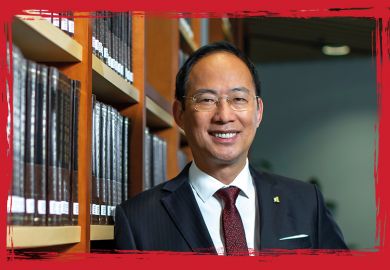I am a Roma woman from Serbia, and also a feminist. I entered higher education because I wanted to show the world that I have a brain, and can contribute to society.
I am especially interested in making things better for other Roma women who, in my experience, are frequently dismissed as not full citizens, or heavily sexualised. At school, I was treated badly – often by non-Roma boys who sexually harassed and tormented me.
To them, I was just a body, and an easy target as I was seen as living on the margins of civilised society. The Roma community often just wants their women to marry and have children. From an early age, I wanted to change my identity and be different.
The media is full of terrible stereotypes of Roma. They are so often portrayed as living in squalor, as thieves and cheats. There is almost no coverage about all the Roma who live and work quietly – often in professional jobs.
I am lucky, because I have received considerable support. I did my undergraduate course at the Central European University in Budapest, which has a strong commitment to supporting and enabling Roma to enter and achieve in higher education. I then came to the University of Sussex to do my master’s in international education and development. It was at Sussex that I came across the Centre for Higher Education and Equity Research.
The centre encouraged and funded me to study for a PhD, and to bring Roma issues into the mainstream of higher education policy and practice. I am now in my third year of doctoral study on access and participation of the Roma in higher education. Although the UK has a strong commitment to widening participation, there is very little attention paid to the Roma community as an excluded social group. I am so pleased that CHEER was open to the suggestion to conduct research on this topic.
My research findings suggest that my experiences were not unique. University students have told me of their struggle to stay in and succeed in all stages of education – often with very limited resources. They told me of the violence that they experienced, the everyday hate crimes, the way in which they had to struggle to be taken seriously in schools and not automatically sent into segregated special schools.
They document so much racism and prejudice, and yet their desire for education persisted, and they were determined to overcome all the obstacles. Let us not forget that the Roma are the biggest ethnic minority group in Europe, yet only about 1 to 3 per cent enter higher education.
I would like to say to all Roma young people everywhere: Go for it! Aim high, and don’t be put off by other people’s prejudice and ignorance. If I can do it, so can you.
Tanja Jovanovic is a Roma student from Serbia who is studying for a PhD at the University of Sussex. The university is today hosting a conference on including Roma communities in European higher education.




